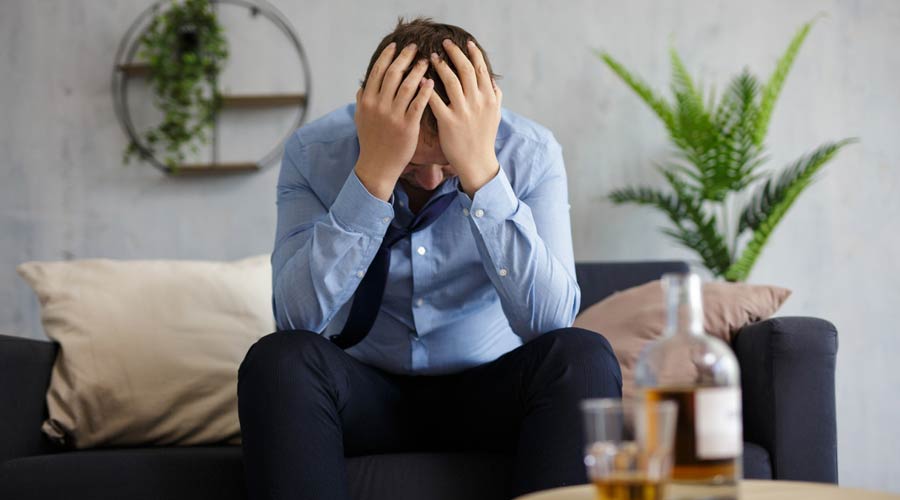
The Surprising Connection Between Alcohol and Anxiety
We’ve all been there – waking up with a beating headache, a sense of regret, and the sinking realization that last night’s indulgence has left us feeling anxious and on edge.
It’s a scenario many of us are familiar with. It’s not uncommon to experience Anxiety after a night of heavy drinking as regrets and concerns about the previous night’s events start to surface. But what exactly is the connection between alcohol and anxiety?
The connection between alcohol and anxiety is a surprising and complex phenomenon that affects many individuals. The coexistence of anxiety disorders and alcohol use disorders (AUDs) is common – presenting a complex clinical picture that requires careful understanding.
This article will explore evidence-based insights on the link between alcohol and Anxiety. We’ll explore how excessive alcohol consumption can impact anxiety levels and discuss why individuals may turn to alcohol as a coping mechanism for emotional distress.
Physical Symptoms
- Increased heart rate
- Sweating, trembling
- Fatigue
- Headaches
- Digestive issues
Emotional Symptoms
- Restlessness
- Difficulty concentrating
- Constant worry
- Irritability
- Sleep disturbances
These symptoms can disrupt relationships, work, and overall well-being.
Alcohol as a coping mechanism for anxiety is a common pattern.
Clinical studies show that:
- 10-40% of alcoholics also have a panic-related anxiety disorder.
- 10-20% of those with an anxiety disorder engage in alcohol or drug abuse.
- Many individuals with both anxiety and alcohol disorders report that anxiety problems preceded alcohol problems.
- Substance abuse, such as cocaine use, can even trigger panic attacks.
- Despite having more severe clinical conditions, some individuals believe self-medication through alcohol or drugs is effective.
Temporarily, alcohol can provide a calming effect on anxiety symptoms by interacting with brain chemistry. It alleviates unease and offers a momentary sense of relief.
However, heavy, and prolonged alcohol use can have detrimental long-term effects on anxiety. It amplifies anxiety and depression over time, disrupting the brain’s natural mood regulation processes.
If you’re dealing with anxiety, it’s crucial to understand the trap of falling into a vicious cycle with alcohol, which aggravates your anxiety symptoms instead of providing long-term relief. Let’s break it down:
- You turn to alcohol for relief.
- It initially brings calmness and relaxation.
- But as the effects wear off, you feel anxious – a symptom of alcohol withdrawal.
- You might be tempted to drink again to ease anxiety.
Unfortunately, this only restarts the cycle. The initial calm feeling fades, and anxiety returns when the alcohol wears off.
Here’s how it happens: The more you drink, the more you need to achieve the same calming effect. Relying on alcohol as a crutch can lead to dependence, making anxiety even harder to manage. So, breaking the cycle and seeking help is important!

